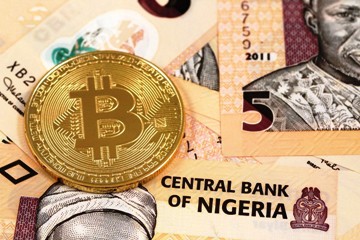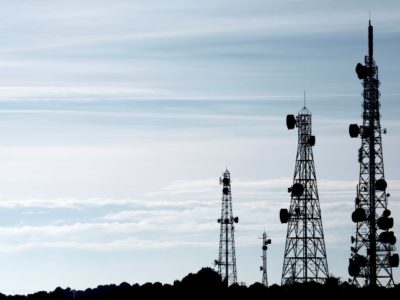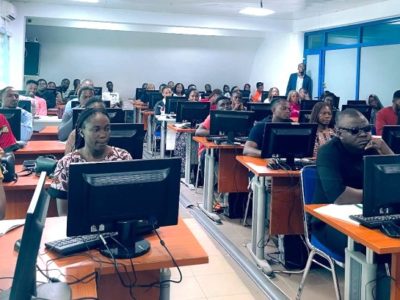By Abdul-Hakeem Ajijola
Nigeria, her leaders, intelligentsia, traders, and our youth urgently need to engage in robust conversations about the optimal response to issues relating to digital currencies, either Central Bank Digital Currencies (CB/DC) or “cryptocurrencies,” which are decentralized. It is alleged that terrorists, corrupt-officials, money launderers and bad actors use crypto-currencies, and therefore they must be banned.
Others argue that cryptocurrencies are the next stage of money and it is a global wave that cannot be stopped and thus banning it outright further stifles our already struggling economy and eliminates an important financial innovation and source of income.
There is a competition over trust and ease of use between cryptocurrencies, which are decentralized and difficult for governments to regulate, and “digital currencies” issued by Central Banks as a new form of fiat money. This competition creates opportunities for Nigeria.
Money is a “trusted intermediary of value” and the evolution of money has been from Cowries -> commodities like salt -> Gold -> Cash (paper) -> Cards (plastic with chip) -> Electronic -> Virtual Money/ Cryptocurrency. In addition, we must appreciate that “Fiat” Currencies are legal tender that
is backed by the nation.
Business, the economy and even society only works well when there is TRUST, and while adoption of a medium as a trusted intermediary of value is important, it does not prevent members of the society from investing their “trust” in other virtual assets. Furthermore, Nigeria has made significant investments in paper currency and secure physical documents production, and now we must ask “What will our Central Bank and national Mint produce in 21st Century?”
Both digital and cryptocurrencies store and transfer value which some find acceptable, but cryptocurrencies also enable unparalleled speculative investment, money laundering, pyramid schemes and usury which are causes for concern and caution. There are issues that our ultra-high strategic decision makers must consider, namely that cryptocurrencies:
- Disrupt the market and the status quo, especially traditional financial institutions, because the incumbent players do not control cryptocurrencies as it changes their centuries old business models.
- Undermines regulators, side-lines Ministers, and other officials because they will lose control as their sectors move to use cryptocurrency when governance mechanisms have not kept up. Sadly, many technocrats lack the necessary know-how to address these challenges nor do they have the power to do so even if they knew what to do.
- Undermines sovereignty and stability as most nations are not yet able to control virtual “money,” given that money, in any form, is power.
The following are three instructive examples of digital currency initiatives on the African horizon, but not “owned” by Africans and they raise the spectre of Digital Colonization:
- Bitcoin, a form of decentralized digital currency with no issuer and thus little control by Nigerian or other regulators:
a. The Eco Bank pan-Africa research report1 notes that only South Africa and Swaziland, out of 39 African Central Banks view Bitcoin favourably.
b. Our Youth and those in the informal trading culture are taking up peer-to-peer virtual
markets, currently estimated to be over $400 million in Nigeria2, alone and over $47 million (Sh5.1billion) in Kenya3. We must appreciate that, in this matter, our youth have already moved on but still need to be factored. - Facebook’s libra, now diem, a digital currency issued, and thus controlled, by a private sector player that Nigeria regulators have minimal control over:
a. Facebook’s primary responsibility is to its shareholders.
b. Diem is a global payments network that is expected to launch this year, 2021. The recent change of terms of service by WhatsApp, which is owned by Facebook, that caused global consternation, was driven by the need to integrate WhatsApp, in future, into the diem or similar payment platforms.
Note that these proposed changes do not apply to European Union citizens nor North Americans; this raises sovereignty and other issues for Africans.
c. Diem’s ambitions of banking the last billion across Africa were frustrated by Africa’s fragmented regulatory regime for mobile money, lack of coherent framework for digital currencies and Facebook has gone back to the drawing board but will likely return this year.
3. China’s Digital Currency Electronic Payment (DC/EP) is the digital version of China’s legal tender, the yuan, which is beyond the jurisdiction of Nigerian and African regulators:
a. China has the upper hand, in Africa, because of political, financial, and economic influences arising from the substantial debts, investments and trade imbalance as many Africa nations are significantly indebted to China.
b. China wants its currency to be a reserve currency like the US dollar and understood that it can dominate early on a new platform which future proofs its currency. At least 14 African central are seriously considering saying yes as arguably debtors’ options are limited.
c. Since 2000, China has accumulated significant influence over Africa’s technology stack, close to 50% in the mobile handset4 and 70% in the mobile network layers5 are Chinese. African nations may find it difficult to say no to China’s digital currency efforts because we are dependent on them.
d. If, as expected, China will launch its digital currency on top of this technology stack, with specially designed chips embedded within dozens of popular Chinese phone brands and network infrastructure that dominate Africa.
e. According to Survivability News, China’s grand plan has three prongs6:
i. Leverage China’s national, economic, and commercial influences,
ii. Ride on Africa’s mobile payments success story, which is something all African should be proud of, and
iii. Use its over 50% smartphone market share in Africa to distribute the DC/EP. It is important to note that Huawei’s Mate 40, which launched in South Africa in October 2020, is the first smartphone that enables a hardware wallet for the DC/EP7, which makes adoption and utilisation easy and convenient for us to slide into.
Way forward. Banning crypto currencies will not stem the tide and will likely result in Nigeria losing the advantages it has. The existing markets will move beyond our jurisdiction and will be difficult to bring back. Furthermore, these bans expose our economy to further infiltration by powerful platforms that we do not control. However, the fundamental question is who controls the money supply: the national government, a third party (like Facebook or China), or decentralized transnational actors (like Bitcoin)? To address the challenges of digital and crypto currencies, Nigeria must:
- Develop its own Central Bank Digital Currency (CB/DC) empowers Nigeria to preserve government control over monetary policy and the money supply while creating the potential for new and less expensive forms of payment systems.
a. One of the benefits arising from a Nigeria CB/DC is the opportunity develop indigenous shared local wallet and other related standards to facilitate monetizing apps.
b. Conceivably, our national Mint can evolve into developing the codes, algorithms, and platforms for issuing CB/DC and leverage Public Key Infrastructure (PKI) for secure documents and transactions as an extension of their traditional functions into the digital age. - c. Use CB/DC to develop indigenous based Settlement systems that are compatible, compliant in conformity with indigenous perspective.
- d. Support digital currency-based microfinance for the poor and underserved.
- e. Develop and implement our own fiat digital currency as being experimented by Sweden, Switzerland, Singapore, Canada, India, Estonia, South Korea, Japan, and UK. A major benefit of our own CB/DC is that it does not require dependence on the digital Yuan or other currencies thus preserving Nigeria’s sovereignty.
- Leverage to our societies’ benefit digital currencies, cryptocurrencies and innovative blockchain projects in areas like financial services, retail and consumer goods, government and democracy, energy, higher education, transportation, manufacturing, media, technology,
telecommunications, and healthcare, among others. - Support and patronise indigenous Fintech solutions which are getting easier and cheaper to develop with the understanding that they cut out middlemen and making the financial sector more efficient. Furthermore, CB/DC creates the foundation for financial innovation, which the Bank for International Settlements (BIS) has been working on because it makes money laundering difficult.
- Increase awareness of challenges and opportunities of digital currencies and the relevant emerging technologies such as Block chain, among our citizens, organizations, academic institutions, private companies, commercial and financial sectors including FinTech, up to toplevel decision makers.
- Seek to understand the digital and crypto currency phenomena and work with global partners to determine optimal and workable regulatory models. In this instance, “greater” smart regulation may not be a bad, as it will stabilise cryptocurrencies and ensure more
reasonable fluctuations.
a. Currently, there is too much speculation, which undermines trust; hurts long-term fund raising; and negates cryptocurrencies as a reliable a means of exchange of value.
b. Some experts believe that it is plausible for governments across the world to collaborate in requiring crypto clearing houses to know their customers which would reduce criminal activities. - Reduce our dependencies by evolving indigenous supply and value chains based on indigenous innovation and technological prowess and build upon African successes in mobile money, and Fintech in Nigeria, to foster indigenous research, development and innovation that
evolves robust and self-sustaining Nigerian solution providers. - Encourage each Nigerian to take ownership of their own personal data so that such secure data can then be used by the owner as they see fit including selling access to it if they so wish.
Prayer: In-line with Nigeria’s leadership role in Africa and in our best national interest, our prayer is that: His Excellency, President Mohammed Buhari, instructs the Central Bank of Nigeria to develop, in collaboration with other African Central Banks, a common continental digital currency that is aligned with the aspirations of the African Continental Free Trade Area (AfICTA), leveraging a domesticated crypto currency platform that is designed, owned, and supervised by a consortium of African Central Banks and stakeholders.
1 https://www.slideshare.net/eraser/cryptocurrency-regulation-in-africa-report-ecobank-transnational-incorporated
2 https://techpoint.africa/2021/01/06/nigerians-traded-more-than-400m-worth-crypto-2020/
3 https://www.the-star.co.ke/business/kenya/2020-12-15-kenya-second-largest-bitcoin-trader-in-africa/
4 https://www.idc.com/getdoc.jsp?containerId=prMETA46110420&utm_medium=rss_feed&utm_source=Alert&utm_campaign=rss
_syndication
5 https://asia.nikkei.com/Spotlight/Huawei-crackdown/Huawei-s-deep-roots-put-Africa-beyond-reach-of-US-crackdown
6 https://survivability.news/clash-of-the-titan-empires-over-africa-more-sovereignty-loss-by-african-nations-china-beating-usato-dominate-africas-digital-currency-race/
7 https://www.coindesk.com/huaweis-mate-40-phone-to-ship-with-digital-yuan-wallet






























